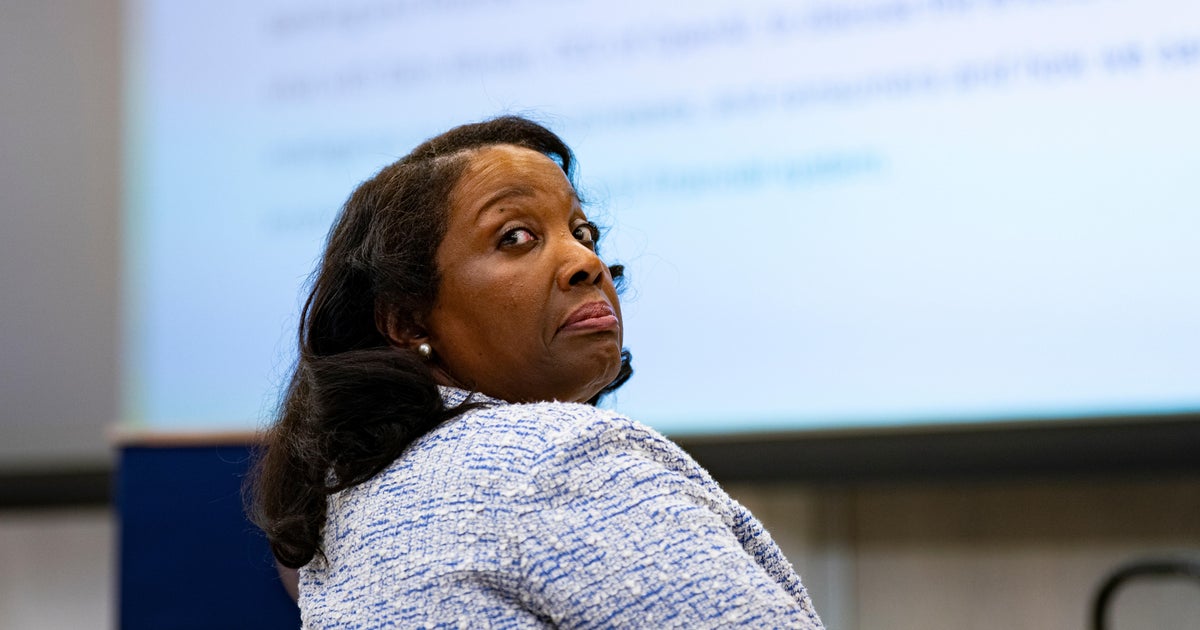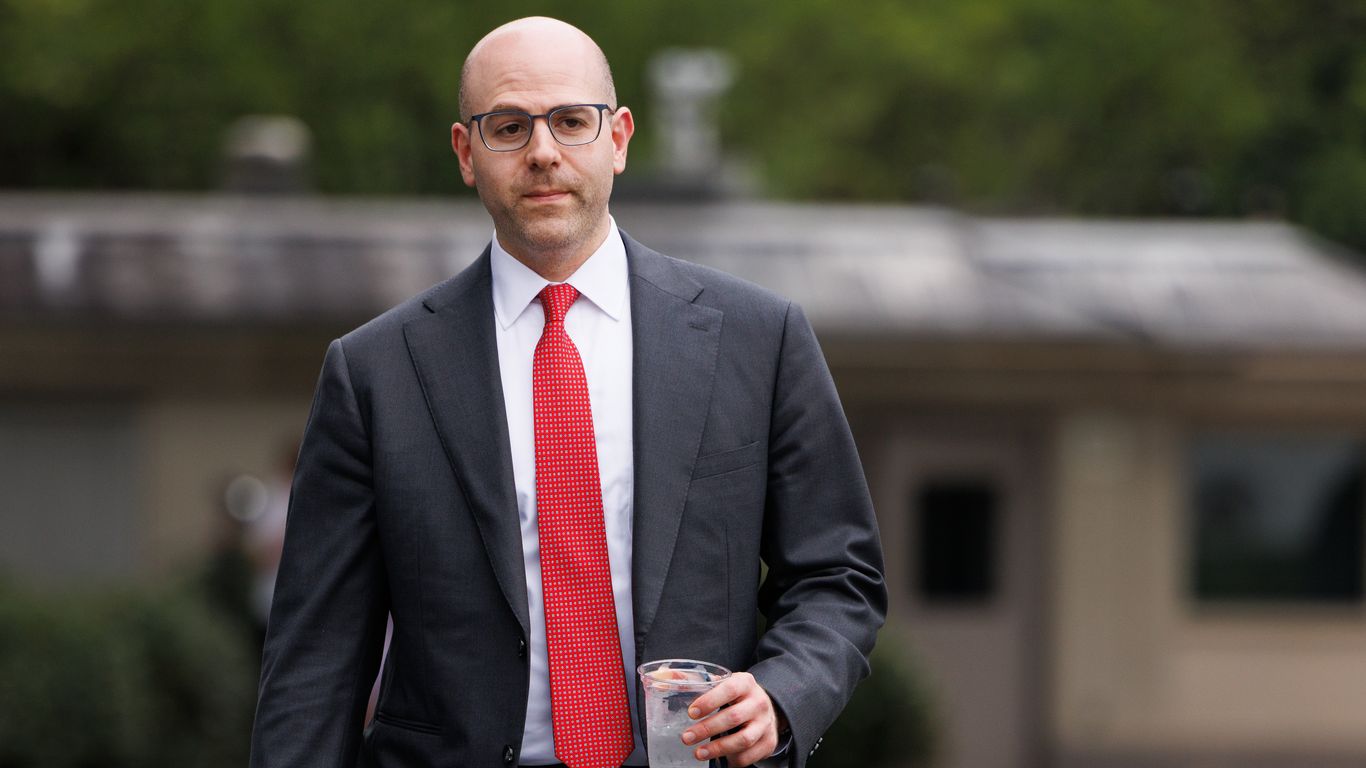Trump Removes Lisa Cook from Federal Reserve Board

Introduction
President Trump's decision to remove Lisa Cook from her position as a member of the Federal Reserve Board of Governors has caused a stir in the political and financial world. The move has been met with both support and criticism, with many questioning the reasoning behind it. This decision is just the latest in a series of changes made by the current administration to the Federal Reserve Board, leaving some to question the long-term implications for the economy.
Key Details
Cook, who has been a member of the board since 2014, is an expert in economic policy and has been a staunch advocate for maintaining the independence of the Federal Reserve from political influence. Her removal has raised concerns about the potential politicization of the board and its impact on monetary policy decisions. This move also comes at a critical time, as the economy continues to navigate the effects of the ongoing COVID-19 pandemic.
Impact
The decision to remove Cook has also sparked a debate about the role and responsibilities of the Federal Reserve Board. While some argue that the board should be independent and free from political interference, others believe that the president has the right to make changes to the board as he sees fit. This decision highlights the ongoing tension between the executive and independent agencies, and the potential impact it may have on the economy and financial markets.
About the People Mentioned
Lisa Cook
Lisa DeNell Cook (born 1964) is an American economist and a member of the Federal Reserve Board of Governors, having assumed office in May 2022 and reappointed in September 2023 for a term ending in 2038. She is notable as the first African American woman to serve on the Federal Reserve Board[1][2][6][8]. Cook holds a BA in Physics and Philosophy from Spelman College, where she was the first Marshall Scholar, and earned a second BA in Philosophy, Politics, and Economics from Oxford University. She completed her Ph.D. in Economics at the University of California, Berkeley, specializing in macroeconomics and international economics[2][3][6]. Her academic career includes faculty positions at Harvard University's Kennedy School of Government (1997–2002), where she was deputy director of Africa Research at the Center for International Development, and Michigan State University, where she has been a professor of economics and international relations since 2005 and gained tenure in 2013[1][2][3][6]. She was also a National Fellow at Stanford University's Hoover Institution (2002–2005). Cook has held significant advisory roles, including senior economist on the Obama Administration’s Council of Economic Advisers (2011–2012) and senior advisor on finance and development at the U.S. Treasury Department (2000–2001). She advised the Nigerian government on banking reforms and Rwanda on economic development[1][2][6]. Her research spans international economics, economic growth, innovation, financial markets, and the economic history of African Americans, notably linking racial violence during Jim Crow to suppressed patent activity. She also leads efforts to promote diversity in economics, directing the American Economic Association’s Summer Program for underrepresented minority students and serving on its Executive Committee[1][5][6]. In 2020, Cook contributed to the Biden presidential transition team’s review of financial regulatory agencies. She has also served on the board of directors of the Federal Reserve Bank of Chicago and the Federal Home Loan Bank of Indianapolis[1][5]. Cook is recognized for her scholarship, public service, and advocacy for inclusion in economics, and has been honored as a leading Black economist by Fortune magazine[5].
About the Organizations Mentioned
Federal Reserve Board
The **Federal Reserve Board** is the governing body of the Federal Reserve System, the central bank of the United States established by the Federal Reserve Act of 1913. It oversees the nation’s monetary policy, supervises and regulates financial institutions, promotes financial system stability, facilitates safe and efficient payment systems, and advances consumer protection and community development[1][3][4]. The Board of Governors consists of seven members nominated by the President and confirmed by the Senate, serving staggered 14-year terms to ensure independence from political influence. From among these members, the President appoints a Chair and Vice Chair for four-year leadership terms. The Board supervises the twelve regional Federal Reserve Banks and plays a key role in formulating and implementing monetary policy through the Federal Open Market Committee (FOMC), which includes the Board members and five Reserve Bank presidents[1][3][8]. The Federal Reserve’s primary monetary policy goals are to maximize employment, stabilize prices, and moderate long-term interest rates. It achieves these through tools like setting the federal funds rate and quantitative easing. Beyond monetary policy, the Board promotes financial stability by monitoring systemic risks and ensuring soundness and compliance in financial institutions. It also fosters efficient payment and settlement systems used daily by banks, government, and businesses, including newer technologies such as the FedNow instant payment service launched in 2023[1][2][4][6]. Historically, the Federal Reserve was created to provide a flexible and stable monetary and financial system capable of responding to banking crises. Over time, it has evolved to play a central role in regulating the financial sector, especially after the 2008 financial crisis, enhancing consumer protections and adapting to technological advances in payments and banking[3][5]. Today, the Federal Reserve Board remains crucial for U.S. economic health, shaping policies that affect global markets and integrating diverse regional economic perspectives through its oversight of the Federal Reserve Banks. Its unique public-private structure balances accountability to Congress with operational independence, enablin












